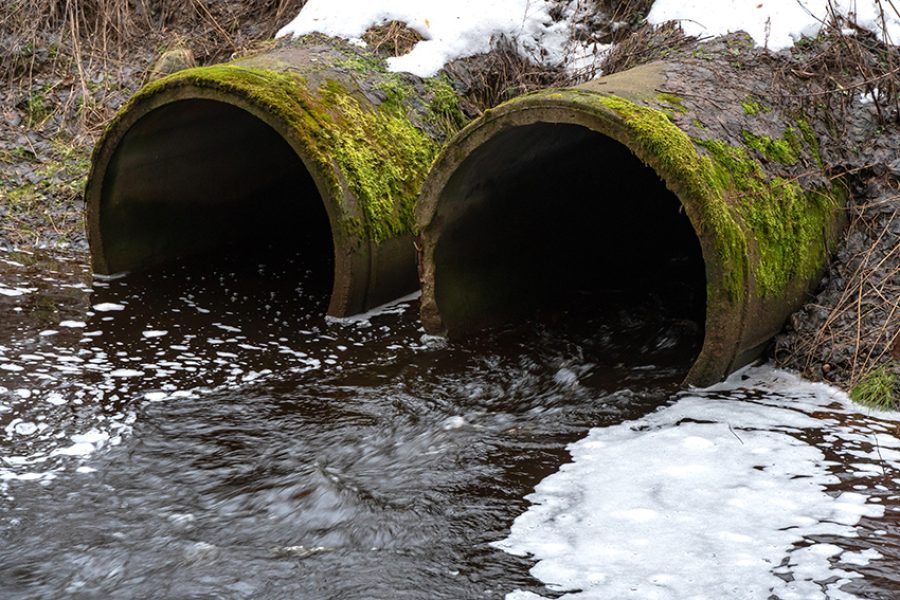Emerging pollutants in aquatic ecosystems
THEME 1
Emerging pollutants and groundwater
THEME 2
Emerging pollutants and managing wastewater and waste
THEME 3
A circular economy approach: Lifecycle management of emerging pollutants
THEME 4
“Priority” emerging pollutants in the hydrocycle: microplastics, nanomaterial, PFAs and PPCPs
THEME 5
Online Conference
Themes & Issues
Emerging Pollutants:
Protecting Water Quality for the Health
of People and the Environment
IWRA decided in 2019 to test run an on-line conference on water to facilitate the international sharing and presentation of the latest research for people who are unable to travel to international conferences, due to the cost, ethical reasons, or other travel restrictions. The plan was to hold this first IWRA Online Conference in 2020. Little did we realise that in 2020 no one would be able to travel to any conference that year. The result was an event well beyond our best expectations, proving the model to fulfill both demand and needs.
Following the huge success (+ 1,450 attendees from 130 countries) of the IWRA 2020 Online Conference on “Addressing Groundwater Resilience under Climate Change”, organised with the support of the UNESCO Intergovernmental Hydrological Programme (IHP), the International Association of Hydrogeologists (IAH), and the IHE Delft Institute for Water Education, the IWRA Executive Board have decided to make the IWRA Online Conference an annual event, and have proposed to hold the 2nd conference from June 7th to June 9th 2021 on the new theme of: “One Water, One Health: Water, Food and Public Health in a Changing World.”
Currently, the whole world has been focused on public health with the COVID-19 pandemic, which has also disrupted farming, production, and shipping, highlighting the fragilities of the interconnected systems we all depend upon. Water is a critical factor in both agriculture and food processing, as well as in nutrition and broader human health issues. This complex nexus of sectors is often treated in silos, from both science and policy perspectives. Examining the inter-linkages between water, food and public health is now more critical than ever, especially as the world changes in response to the stressors of pandemics, climate change, population growth, and urbanization. This theme also fits well with on the “Road to Dakar” preparations for the 9th World Water Forum in Senegal in March 2022.
THEME 1

Emerging pollutants in aquatic ecosystems
- Identifying and assessing ecological risks
- Science informing policy / policy informing science
- Institutional, policy and regulatory challenges and approaches.
- Technological versus nature-based versus regulatory solutions
- Success stories and case studies
THEME 2

Emerging pollutants and groundwater
- Identifying and assessing human health and ecological risks
- Science informing policy / policy informing science
- Institutional, policy and regulatory challenges and approaches
- Success stories and case studies
THEME 3

Emerging pollutants and wastewater
- Identifying and assessing human health and ecological risks
- Science informing policy / policy informing science
- Wastewater and the circular economy
- Institutional, policy and regulatory challenges and approaches
- Innovative infrastructure to reduce risk of trace contaminant release
- The roles, responsibilities, and contributions of the private sector
- Success stories and case studies
THEME 4

A circular economy approach: Lifecycle management of emerging pollutants
- Science informing policy / policy informing science
- Institutional, policy and regulatory challenges and approaches
- The roles, responsibilities, and contributions of the private sector
- Success stories and case studies
THEME 5

“Priority” emerging pollutants in the hydrocycle: microplastics, nanomaterial, PFAs and PPCPs
- Science informing policy / policy informing science
- Institutional, policy and regulatory challenges and approaches
- Identifying and assessing human health and ecological risks
- The roles, responsibilities, and contributions of the private sector
- When is the hazard/risk too high?

